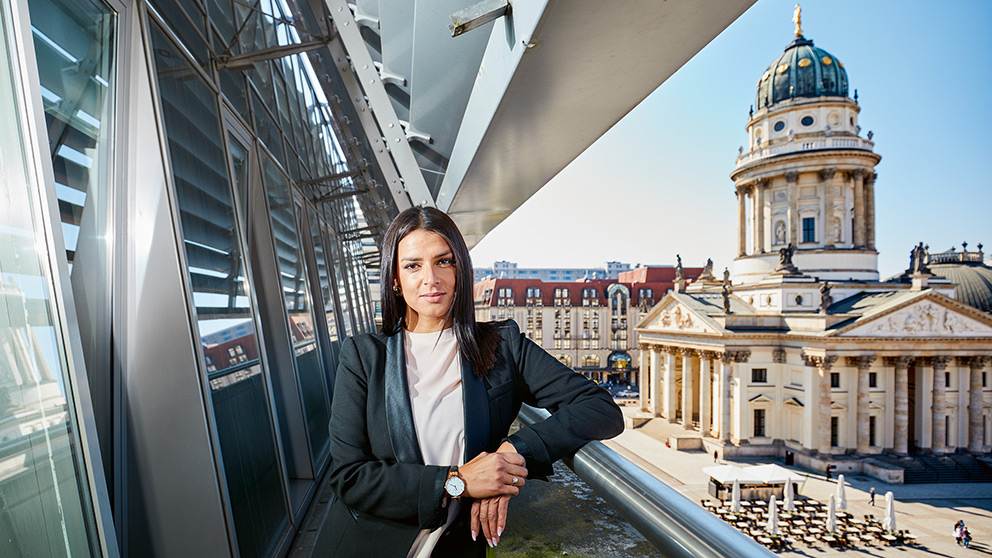Jump to the content
- {{#headlines}}
- {{title}} {{/headlines}}

From the windows of the Humboldt Foundation’s offices in the WissenschaftsForum Berlin, I can look directly out onto the German Cathedral and the Concert Hall. I think the Gendarmenmarkt is one of the most attractive squares in Germany. But as a workplace, it has its snags. Sometimes in the lunch hour, you can hardly get out of the building if the police have closed off the roads during a state visit, or you have to fight your way through hordes of tourists.
There are six of us working in the Foundation’s Berlin office. Our aim is to facilitate national and international encounters involving academics, politicians and diplomats. I am particularly fond of the Frontiers of Research Symposia which bring together outstanding junior researchers from two or three different countries at a time.
The international aspects of my job are something I really enjoy. I have already had the opportunity to welcome the Ambassador of Botswana, and I organised the annual Thanksgiving celebration with American Humboldt Fellows where the US Ambassador himself carves the turkey.
The main focus of my work is organising events. Apart from the New Year’s Reception at the start of the year, one of the highlights is the reception we hold together with other science organisations during Berlin’s Classic Open Air Festival. Unfortunately, it was there of all places that I, Brazilian by birth, experienced what it means to be pigeonholed. “And where do you come from?” asked a member of a party newly represented in the Bundestag, scrutinising my name tag. “From Berlin-Zehlendorf,” I replied. “And your parents?” he queried. “From Paderborn,” I answered honestly. This kind of everyday racism makes me really angry. What, pray, does an Emily Kleine have to look like, I ask myself, in order to be accepted by some people as German?
published in Humboldt Kosmos 110/2019
